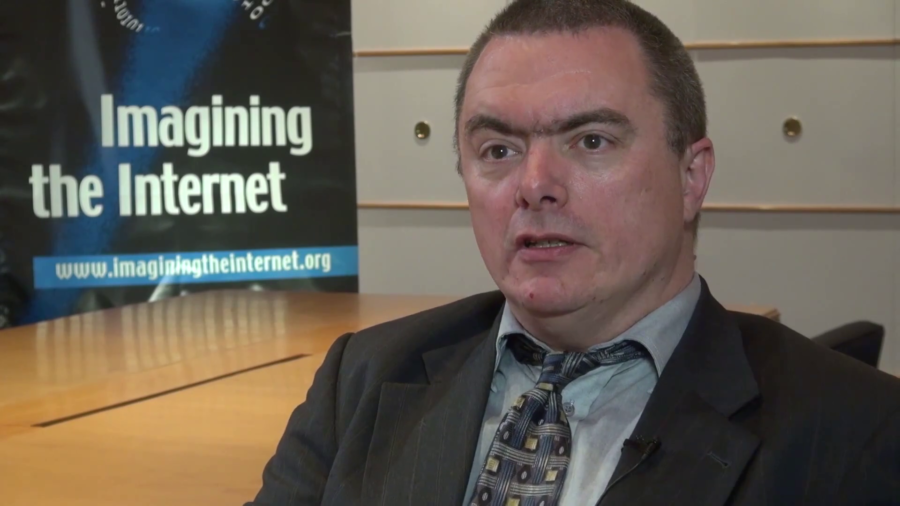Paul Vixie: I think in my case, I took over the main implementation of the DNS software—it’s called BIND—when its authors graduated from UC Berkeley. And I maintained it for ten years. Then I hired people to rewrite it, and then I hired other people to rewrite it again. And then it eventually got some competition, but I think with all the competition that BIND now has its market share has shrunk to 85% of the Internet.
Intertitle: Describe one of the breakthrough moments of the Internet in which you have been a key participant?
Vixie: I think for me the first breakthrough moment was when I realized that there wasn’t anyone else working on this and the protocol was broken. DNS was okay but it was an academic, by and large, protocol, and it needed some things done to it. And I had thought, since I started outside the IETF and outside the protocol development community, I began working on it as a programmer, I thought that the rules were pretty well set in stone and it turned out they weren’t. So for me the breakthrough moment was when I realized that I could also write RFCs and extend the protocol.
Intertitle: Describe the state of the Internet today with a weather analogy and explain why.
Vixie: I would say that the Internet is…I’m going to about climate rather than weather. I think that the sea is rising. I think the we are melting the ice caps of the Internet and we are slowly cooking ourselves to death. IP version 4 ran out of address space a few years ago. But no one…really cares. The people who’re building networks would rather go look for address space on the secondary market and build their networks out of dribs and drabs of non-greenfield address space than to bite the bullet and adopt IP version 6. We really have to have IP version 6 if we’re gonna be multiplying by ten or a hundred ever again the number of devices connected to the Internet. And I know that’s what we all want to do. But it means we all have to jointly agree to bear the cost of that.
Intertitle: What are your greatest hopes and fears for the future of the Internet?
Vixie: My concern for the Internet is that we’re gonna balkanize. You know, if you look at many fine times in history when you took a nation and broke it up into pieces because people just couldn’t get along. So right now we’re living in what may be the golden era, where the same domain name that works in California works in Taiwan, and the same IP address if it’s allocated to somebody then that allocation is respected and it’s unique worldwide. I think there’s a fairly good chance if we do the wrong thing with ICANN or if we do the wrong thing with the IP version 6 transformation, that we’re gonna end up with a whole lot of little Internets and gateways in between them.
If the Internet has a hope of sort of growing more like itself, larger, and continuing in its role as humanity’s digital nervous system, it is the open source movement. It is all those crazy kids and their Linux machines, and all of the code that they’re writing, that allows them to sort of set the rules for what the future’s gonna look like rather than waiting for some big corporation to do it for them.
Intertitle: What action should be taken to ensure the best possible future?
Vixie: When I contemplate “how do we get to the best possible future of the Internet,” I am thinking more in terms of inaction than action. I would like to encourage deliberate inaction in the form of keeping hands-off. I would like large companies or national governments to look at the Internet and say “This is pretty cool, and if we put our hands on it and try to make it what is gonna be best for us in our lifetimes, it’s going to cause everyone else to do likewise.” And if everyone could just commit to the inaction of not providing the sheer force that will destroy something that is really extremely coherent for what it is, then and only then will we get to the best possible future.
